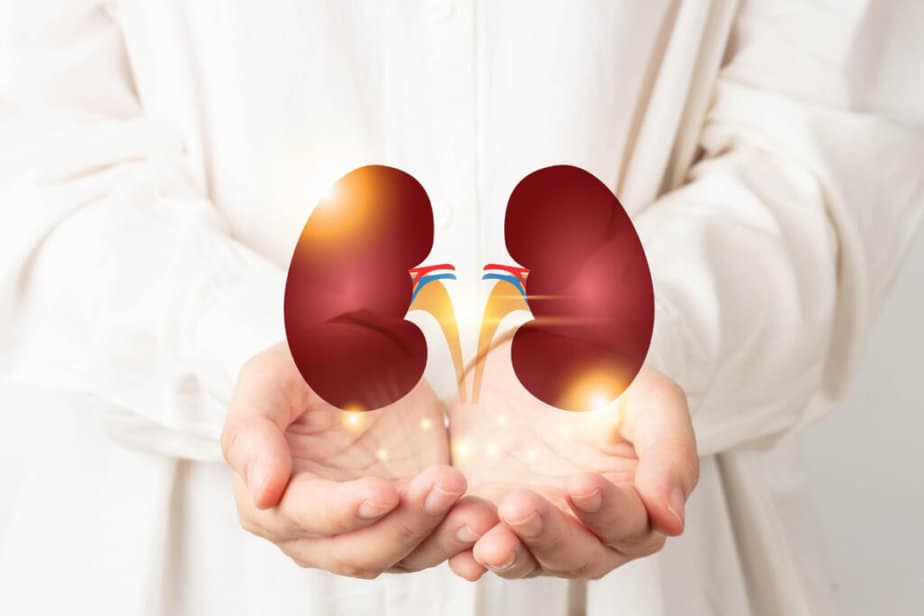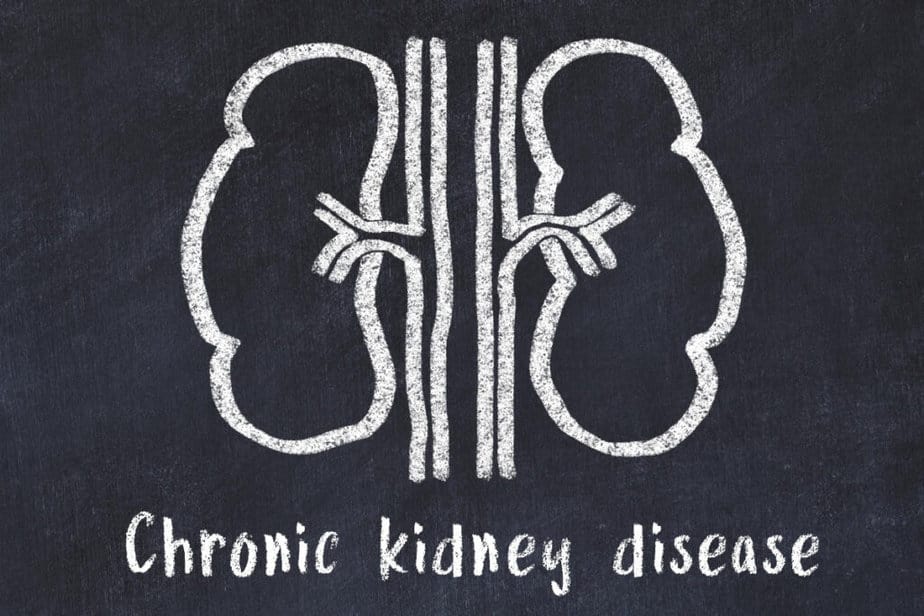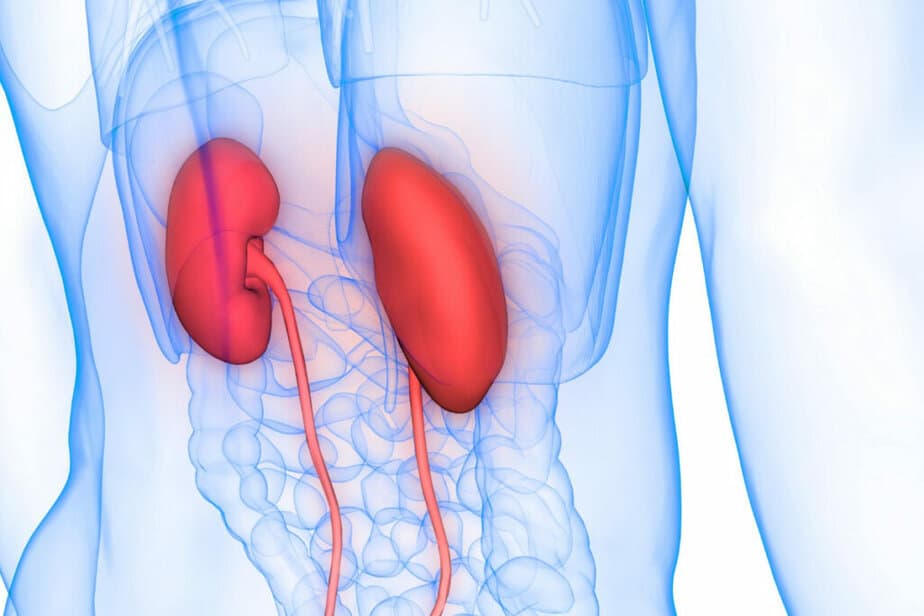Kidney disease is a major health issue in the United States. It affects millions of Americans every year and costs billions of dollars to treat.
Kidney disease is often overlooked because it doesn’t cause any symptoms until it has progressed far enough to damage the kidneys. This means that many cases go undiagnosed until it’s too late.
This article will provide you with an overview of kidney disease and how it progresses. We’ll also look at the signs and symptoms of kidney disease and how to prevent it from progressing further.
Let’s first understand what it is that the kidneys do for our bodies.

What Do the Kidneys Do?
- Keep us safe from the harmful effects of toxins by filtering blood of the natural by-products of metabolism, drugs, and other toxins
- Keep the blood pH balanced so that it is not too acidic or too basic
- Balance water and electrolyte concentrations (minerals such as potassium, magnesium, sodium, and others), and control the blood volume
- Control blood pressure through the production of renin
- Produce the hormone erythropoietin, which is responsible for creating new red blood cells
- Manage bone health – vitamin D is changed from the inactive to active form within the kidneys, and is then able to signal the intestines to absorb more calcium, ensuring the availability of adequate amounts of bone-building calcium
Kidney Disease Prevalency
- A dramatic rise in cases of chronic kidney disease has been seen over the last five years.
- Kidney disease is 1 of the top 10 causes of death in the United States
- Kidney disease afflicts a staggering 13% of Americans.
- Only 1 in 10 people with kidney disease know they have it – kidney failure isn’t even noticeable until the organs have lost 75% or more of their function.
- Approximately 39 million Americans have kidney disease, but nearly 35 million of them don’t even realize they have it!

Who is at Risk for Kidney Problems?
Kidney function gets slower as we age, so the short answer is everyone is at risk. But the dramatic rise in the number of people with kidney disease is predominantly attributable to two specific diseases.
High blood pressure and diabetes are very harmful to the kidney. High blood pressure directly harms the kidneys by burdening the organ with increased blood pressure.
For those with diabetes, the small blood vessels in the kidneys are injured by high blood sugar. The number of people with diabetes who will end up with kidney problems is high – approximately 30-40% will eventually experience kidney failure.
Pharmaceutical drugs (both prescription and over the counter medications), poisons, pesticides, street drugs, and many other chemicals in our environment wreak havoc on the kidneys.
The most common medications that are damaging to the kidneys are over-the-counter pain relievers such as aspirin and NSAIDs like ibuprofen.
When the kidneys are damaged, their filtering effects stop functioning. This means that wastes and toxins begin to build up in the blood. You cannot live long without the detoxifying efforts of the kidneys.
When kidneys fail, the only choices are dialysis (artificial filtration) or a kidney transplantation.
How to Protect Your Kidneys
Various herbal remedies have been shown to have some impact on helping to protect the kidneys.
- Turmeric – A root that many of us know as a spice used in cooking, aids the liver, helps ease the symptoms of arthritis and heart disease, and prevents and treats certain cancers. Turmeric also protects the kidneys from being damaged by drugs and other chemicals.
- Ginger – This herb is well known for calming the stomach, and being good for the heart. Ginger acts as an anti-inflammatory, and it protects the kidneys from damage by a variety of drugs and chemicals.
- Garlic – While most beneficial for the heart, garlic is also great for the digestive system. It is both an antioxidant and anti-inflammatory. Garlic aids the kidneys by protecting them from damage at the hands of heavy metals such as lead and cadmium, and it helps reduce kidney-damaging high blood pressure.
- Aloe – This herb is great for both digestive problems, and for offering the kidneys protection from the damage normally caused by diabetes.
- Milk Thistle – There is likely no better herb for the liver than milk thistle, which also helps the kidneys function better, and protects them from the damaging effects of a wide variety of insults.
- Glutathione – If you want your kidneys to last a long time, make sure that you have enough glutathione in your body. Glutathione can be supplemented directly, or can be recharged in the body by taking enough vitamin C. Glutathione helps the kidneys detoxify many chemicals, and may even help to reverse chronic kidney disease.
- Methionine – The kidneys can be damaged by oxidants; the solution to this problem is to ensure there are enough antioxidants in the blood by supplementing with methionine, which also helps to lessen the effects of the overburdening of toxins on the kidney.

Detoxifying Your Kidneys
Now that you know how important your kidneys are, you may want to take the time to better care for them.
The surest way to help cleanse your kidneys besides diet is to focus on drinking plenty of water and eliminating medications that can cause them harm.
Controlling blood pressure and managing diabetes can help delay or prevent progression of chronic kidney disease.
Kidneys for Life
Taking care of your kidneys means that you are taking care of your whole body. Our kidneys keep most of us toxin-free without us ever knowing they’re there.
While their silent nature is good for us, it makes it difficult to know when they’re not working well.
In order to ensure that your kidneys last as long as you do, make sure you’re getting proper nutrition, taking a multivitamin, and hydrating.
If you have diabetes or high blood pressure, it is vital to take extra special care of your kidneys to avoid increased risks for developing chronic kidney disease.
Here are other health conditions that you may be interested to learn more about:

